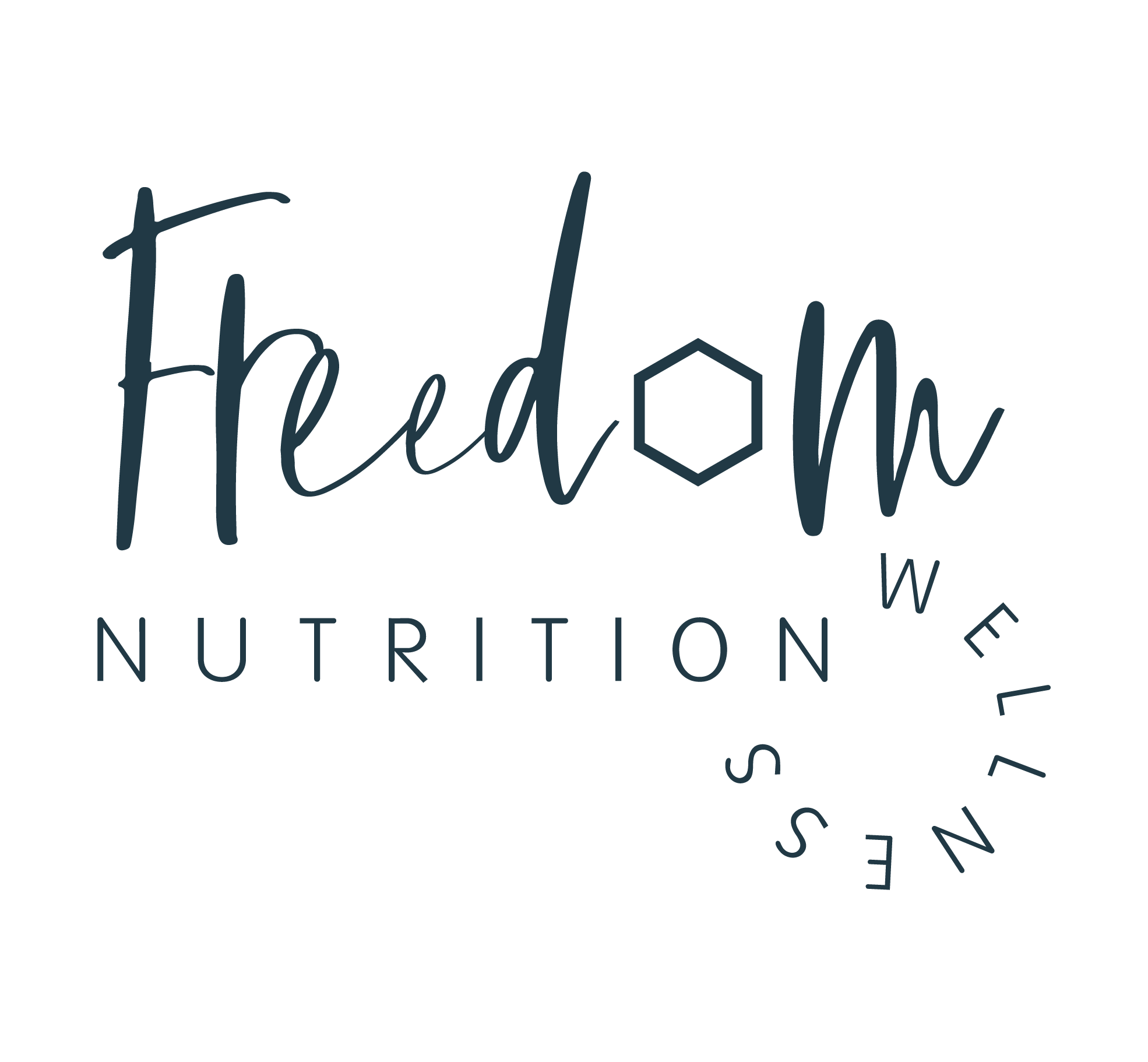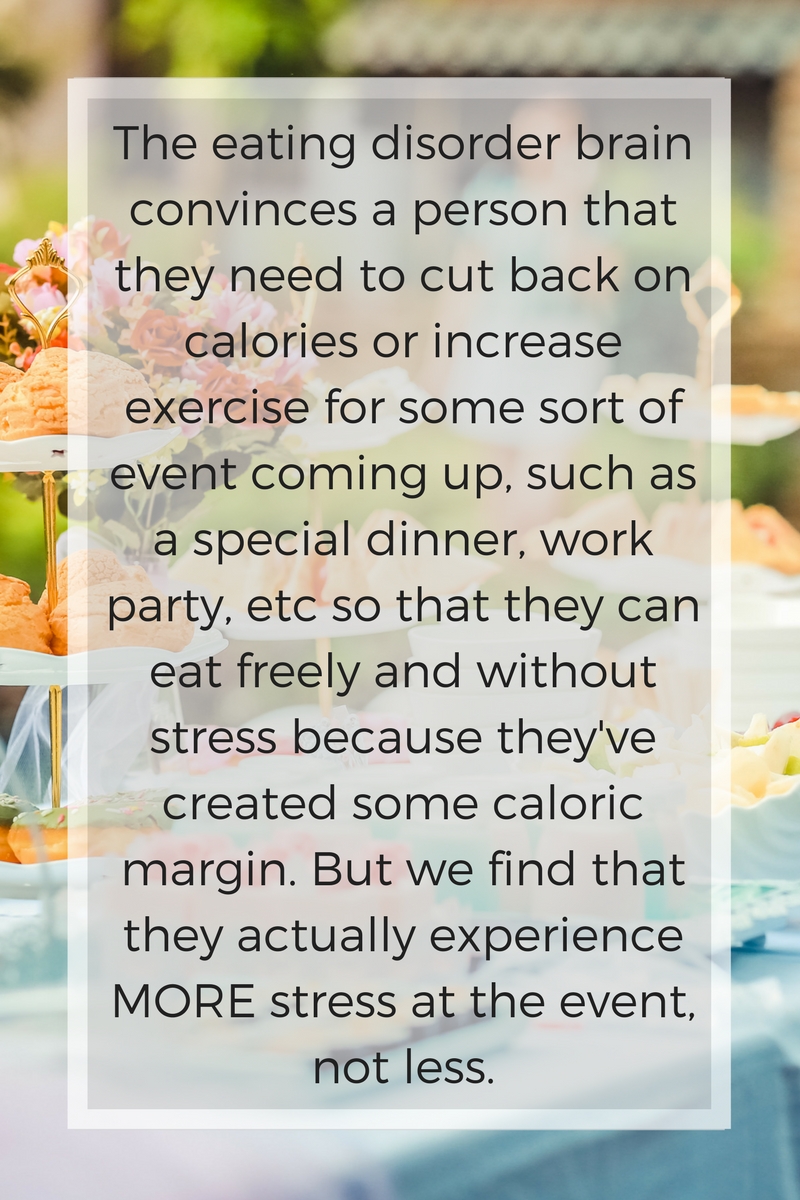"Your weight doesn't determine your health"...but sometimes it does
I think it's pretty evident that I'm a non-diet and weight neutral dietitian if you follow me along on Instagram. I tell clients all the time that ultimately, I don't care where their weight ends up. In school I was taught about BMI, ideal body weight, and acceptable weight ranges. I DO use some of these to help determine a starting point for where I want my restrictive clients to end up, but ultimately they are simply equations that don't take into account varying shapes and sizes. And unfortunately, none of them allow for larger bodies to be considered okay. Thankfully, I now know that people can be healthy in a variety of shapes and sizes and that I simply cannot know the health of someone simply by looking at them. I also know that fat, fit people are far more likely to survive heart attacks, cancer, car accidents, etc than thinner, "normal" weight people. You can absolutely be healthy in a bigger body.
So no, I ultimately don't care about people's weight. I care about their behaviors. I care about their mental wellbeing. I care about what's going on in their heart. If a client is no longer restricting, listening to and honoring hunger signals and cravings, not manipulating food or exercise to control weight, having a normal period and other health indicators, and experiencing freedom with food, I don't care that their weight may be a few pounds lower than what I estimated. I also don't care if they are experiencing the above and are a few pounds heavier than I originally expected. The weight is not the ultimate issue, the heart and mind are.
BUT, that doesn't mean that I believe you can pursue eating disorder recovery from anorexia and not gain weight in the process to becoming mentally healthy. No, ultimately the disorder is not about the body size. But the body size absolutely impacts the mind and it's ability to heal. We know that weight loss is a major trigger for the development of an eating disorder. It doesn't matter if the weight loss was intentional through dieting or unintentional through getting the stomach bug, mono, or other illness. For those that are predisposed, the weight loss seems to "flip a switch" in their brain that then tells them they need to move more and eat less. You can have someone who previously had no body image issues get sick, lose weight, and then become terrified of gaining weight and feel the need to restrict all of their eating. The more starved a person becomes the more preoccupied they become with their weight and the more fearful and anxious they become around food and their body. We also know that the more starved an individual is, the less they are able to think cognitively because their brain simply does not have enough energy to process everything properly. So it's two-fold, the starved brain can't think clearly due to lack of energy and it is stuck in the eating disorder mental illness.
It's interesting when we think of restricting for some sort of event. The eating disorder brain convinces a person that they need to cut back on calories or increase exercise for some sort of event coming up, such as a special dinner, work party, etc so that they can eat freely and without stress because they've created some caloric margin. That seems to make sense--reduce calories earlier in the day or for a few days so that when the event comes and you eat more energy than normal, you don't have to stress about gaining weight because you'll be back at zero instead of the plus. But we find that is not the case. We find that if a person with anorexia restricts before an event (or several days before), that they actually experience MORE stress at the event, not less. The further they are in energy deficit, the more the brain tells them they need to restrict calories. The answer to creating less stress is eating more, so that the brain is not in further energy deficit.
Clients who are gaining weight and getting their hunger signals back tell me all the time that they are concerned about gaining weight forever because their hunger is so strong. I get it--the brain is making you think about food ALL. THE. TIME. And that's because it and your body are starved. But once the body and brain are well fed, those constant thoughts about food, intense cravings, and intense hunger pangs lessen. However, this happens once the body reaches the point at which it is no longer in starvation or restriction. And this point may be higher than what they want it to be, what is deemed their ideal body weight, or a "healthy" BMI. Reaching a BMI of over 18.5 doesn't mean that the body is now healthy and where it wants to be. In fact, most people need to be well over it in order to be fully recovered.
So, for those of you reading who are pursuing recovery from an eating disorder, you simply canNOT gain full recovery without adequately feeding your brain and gaining weight. If you're working with a therapist and hoping that you will have an aha moment without weight restoration, I'm here to tell you that it is very unlikely. You need to first gain the weight and THEN you will be able to do the brain/emotional work that is needed. You've got to get your weight to the point where the brain re-flips that switch so that it is no longer in the eating disorder mindset. It's interesting that the more weight you gain, the less you actually care about the size of your body and the less fearful you are around food. It's no surprise that research has shown that patients who discharge from in-patient treatment at a higher BMI have a higher success rate those who do not. The key is that you HAVE to get your body and brain out of energy deprivation.
With my clients, I'm not looking for the point at which their body is healthy, I'm looking for the point at which their mind is. There is sometimes a difference. And if we want to see true eating disorder recovery, we as healthcare providers and caretakers need to throw out our fears and preconceived ideas that a person "should" be a certain size. We need to get rid of the fears of people being fat and instead care about the fact that they are healthy physically, mentally, and emotionally. I know the thought of gaining weight is terrifying for those of you stuck in your restrictive eating disorder, but the only way to truly get out is to start eating more and let your body decide where it needs to end up.
If you're struggling with restriction, bingeing, purging, or simply a stressful relationship with food, I am accepting virtual clients and would love to walk with you on your journey to eating disorder recovery.



